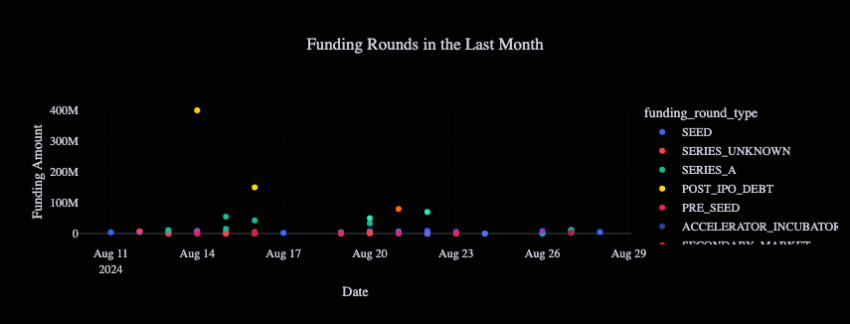Building a successful crypto company requires more than just an idea. For Dominic Williams, founder and chief scientist at DFINITY, his journey from developing simpler tech projects to creating the Internet Computer serves as a testament to the multifaceted challenges that come with building a blockchain company.
Williams recently shared insights into the process of turning his vision for a decentralized internet into reality with BeInCrypto, offering valuable advice for entrepreneurs looking to navigate the crypto industry.
Securing Investor Support
Williams’ career began with projects like massively multiplayer online games (MMOs), but transitioning to blockchain presented a completely different challenge. “Blockchain required a new approach to consensus mechanisms and cryptographic security,” Williams explained.
This change in focus meant embracing new technological paradigms and overcoming significant hurdles, such as securing funding and navigating regulatory landscapes.
The concept of the Internet Computer, a decentralized network designed to extend the functionality of the public Internet, became the foundation for DFINITY. To attract investors, Williams emphasized the project’s innovative nature and long-term impact.
For any entrepreneur in the crypto space, securing early-stage funding is crucial. Williams notes that clearly articulating both the technical feasibility and the larger transformative potential of a project is key to winning investor confidence. His pitch for the Internet Computer focused on how it could bring full-stack decentralization and serverless cloud functionality to the public internet—an idea that resonated with investors seeking to be part of a disruptive technology.
His advice for entrepreneurs? “Deeply understand and articulate your vision in a way that is both technically sound and compellingly transformative,” he said.

Investors want to know that your project not only solves a current problem but also has a lasting impact. Alongside a strong vision, having a credible team capable of executing that vision is essential. “Build a team with the expertise to drive the project forward,” Williams emphasized.
Building for the Long Term
Navigating the crypto space’s regulatory landscape has become an increasingly complex task for companies. Williams’ approach to regulation is proactive and transparent. He stressed the importance of engaging early with regulatory bodies and maintaining clear communication about a project’s goals and operations.
“Building transparent relationships with regulatory bodies can help anticipate and address concerns before they become obstacles,” Williams explained.
Demonstrating a commitment to compliance while showcasing the broader societal value of your project helps to build trust. This strategy allows companies to stay ahead of regulatory changes and ensure their operations align with evolving legal frameworks.
One of DFINITY’s primary goals has been to solve problems that existing blockchain systems haven’t fully addressed. The Internet Computer is designed to extend the Internet by creating a decentralized web where applications and services can run entirely on the blockchain without the need for traditional cloud infrastructure. Achieving this required a relentless focus on research and development (R&D).

“Innovation involves a relentless commitment to R&D,” Williams said. He highlighted the importance of fostering a culture of continuous learning within his team. The cryptographers and engineers at DFINITY constantly push boundaries, anticipating the future needs of the ecosystem and adapting accordingly.
For entrepreneurs, Williams advises focusing on building solid, innovative technology that addresses real-world problems. By communicating transparently about the project’s goals and demonstrating practical use cases, companies can differentiate themselves from others relying solely on hype.
“Focus on designing architectures that can grow without bottlenecks,” Williams advised. Planning for future growth and building with resilience in mind can prevent scaling issues from becoming roadblocks later on.
The Future of Blockchain
Williams sees blockchain as a transformative force across multiple industries, from finance to healthcare. “Blockchain is set to transform how various sectors operate, offering increased transparency, security, and efficiency,” he explained.
With DFINITY’s recent launch of UTOPIA, a serverless network built on the Internet Computer for private enterprises and governments, the potential for blockchain technology is beginning to be realized beyond its traditional use cases.
One of the most exciting emerging trends Williams highlighted is decentralized AI (DeAI). By running AI models on blockchain through smart contracts, DeAI has the potential to bring transparency and accountability to the field of artificial intelligence.
Read more: What Impact Can AI Have on NFT and Crypto Marketing?
This development could mitigate concerns about bias, privacy, and decision-making in AI, making it a key area of focus for blockchain’s future applications. Therefore, by focusing on real-world problems and prioritizing innovation, entrepreneurs can cut through the noise and create a lasting impact in the blockchain space.
 beincrypto.com
beincrypto.com
